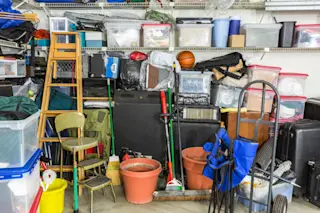For years, organizational expert Marie Kondo advised people to declutter their homes. An object that didn't "spark joy" needed to be let go, and a person had to be mindful not to "relapse into clutter" by buying things they truly didn't need.
Kondo recently admitted her own relapse into clutter. She told a reporter from The Washington Post, "My home is messy." She's now the parent of three young children, and culling her bookshelves is no longer a priority.
Household clutter is such a universal issue that it launched Kondo and her decluttering method into international fame. But it's also such a consuming problem that even Kondo isn't immune.
Social scientists are learning more about the human desire to hold onto things. It's a complex issue, and they're finding there isn't just one reason behind our clutter habits.
From a young age, kids are taught to save for the future. ...















